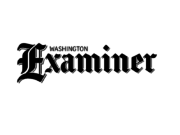As the saying goes, “the road to hell is paved with good intentions.” That’s especially true in politics.
The most recent example of the limits of good intentions is that of Lissa Lucas, who is running as a Democrat for West Virginia Legislature. On Feb. 9, Lucas traveled to Charleston to voice her opposition to a bill that aims to boost oil and gas development in the state. To make her point (which, according to her, was to emphasize how “the people who are going to be voting on this bill are often also paid by the industry”), Lucas stood in the legislative chamber and read aloud a list of lawmakers who had received support from oil and gas industry PACs. The spectacle took a dramatic turn when Lucas was removed from the chamber, allegedly for making improper personal remarks.
In a subsequent blog post, Lucas published in full her prepared remarks, which doubled down on her original charge that lawmakers were betraying their constituents in favor of corporate PACs (corporate candidate contributions are banned in the state). Elsewhere on her website, Lucas demands West Virginians “get the money out of politics.”
It’s a shame Lucas was forcibly removed from the chamber, even if perhaps she was in violation of chamber rules. That said, her remarks themselves exhibit a fundamentally flawed understanding of free speech rights. In addition to being misleading, Lucas’s remarks reflected a view of speech rights that has been explicitly rejected by the Supreme Court — and for good reason.
First, Lucas’s motive in announcing oil and gas PAC donation recipients is anchored in an entrenched belief that public disclosure of any and all donations strengthens government integrity and has no drawbacks. The belief isn’t without some merit (as Justice Louis Brandeis said, “sunlight is said to be the best of disinfectants”), but there’s good reason to believe overly burdensome disclosure requirements may actually be working against the very people Lucas hopes to help.
A 2013 study from the University of Massachusetts, for example, studied the negative effects of public disclosure laws on individual willingness to give and found startling results. “When some citizens believe that their contributions will be posted publicly on the Internet,” concluded the study, “they tend to cut back on donations or not give at all.” Individual citizens are especially cognizant of what the study calls “social influence theory,” and are vastly more likely to be fearful of public backlash in a way corporations are not. In West Virginia, even a $1 contribution is published online for all the world to see. In other words, enacting overbroad disclosure laws to diminish corporate influence in elections — as West Virginia has — may in fact aggravate the disparity.
Second, there’s little evidence that “getting the money out of politics” actually yields better government. Another 2013 study from the Institute for Free Speech, using data from the Pew Center on the States, found “no relationship between a state’s regulation of corporate or union contributions to candidates and the quality of management in a state.” In fact, of the 21 states that prohibited corporate contributions entirely, only three were considered “above average” in state management. Eight were deemed “below average.” Meanwhile, of the five highest-scoring states, three had no limit on election contributions by corporations.
Finally, the constitutional underpinnings of Lucas’s argument defy Supreme Court precedent. The court has long recognized a corporation’s right to be involved in the political process and to make independent expenditures that support one candidate over another. Moreover, the court has explicitly rejected arguments that the government has any interest in “equalizing the relative ability of individuals and groups to influence the outcome of elections.” In that spirit, Lucas’s indictment of corporate speech is little more than a call to expel a political opponent, by virtue of their wealth, from the public square — something the First Amendment clearly does not allow.
Lucas may be justified in her opposition to further oil and gas development, and frustrated by her rivals’ corporate backing. But her solution shouldn’t be to demand her opponents be silenced; it’s to talk back. More speech, not less, is how a democracy survives.
This post originally ran in The Washington Post on February 23rd 2018.














